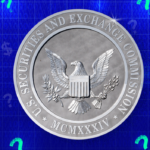Transaction fees on Layer 2 (L2) solutions for Ethereum have dropped to “almost zero,” marking a significant milestone for digital assets. This was stated by Ethereum co-founder Vitalik Buterin, as reported by Cointelegraph.
“From $0.5–10, we’ve dropped to $0.01, practically to zero. Optimism and Arbitrum — the two major Ethereum Layer 2 solutions — have reached this important milestone. […] Rollups are quickly becoming safer, they are finally accessible,” he commented.
According to Buterin, high fees were previously one of the main barriers to cryptocurrency adoption.
Buterin recalled that he had once paid over $800 for a privacy-preserving transaction.
The Ethereum co-founder also highlighted a significant improvement in transaction confirmation times following Ethereum’s transition to the Proof-of-Stake consensus algorithm in September 2022.
“Now I can comfortably confirm my transactions in 5-15 seconds,” he added.
In conclusion, Buterin called on industry participants to create practical solutions for the new wave of mass adoption, but without compromising decentralization.
Bullish Market and the Fed
Former BitMEX CEO Arthur Hayes noted the risks of falling stock prices and other risky assets just days after the Federal Reserve meeting on September 18. He based his forecast on the unwinding of carry trade positions in the yen due to the narrowing interest rate differential between the U.S. and Japan.
“We saw what happened a few weeks ago when, in 14 days of trading, the USD/JPY exchange rate collapsed from 162 to 142, causing almost a mini-financial collapse. We will see a repeat of this financial stress,” the expert pointed out.
Hayes called Ethereum the “internet bond” with a 4% yield, which now looks less attractive compared to U.S. Treasury bills.
He expressed confidence that Ethereum would soon begin its bullish cycle once the yield differential, unfavorable to Ethereum, disappears as the Fed continues its policy easing.
It’s worth noting that in September, Hayes explained Bitcoin’s price decline as a result of a liquidity shortage.
Earlier, Hayes had called Bitcoin a more reliable safe-haven asset than gold due to its lack of national control. He predicted that the market would emerge from its downward sideways movement starting in September, fueled by expectations of new stimulus measures in the U.S.














 Cryptol – your source for the latest news on cryptocurrencies, information technology, and decentralized solutions. Stay informed about the latest trends in the digital world.
Cryptol – your source for the latest news on cryptocurrencies, information technology, and decentralized solutions. Stay informed about the latest trends in the digital world.